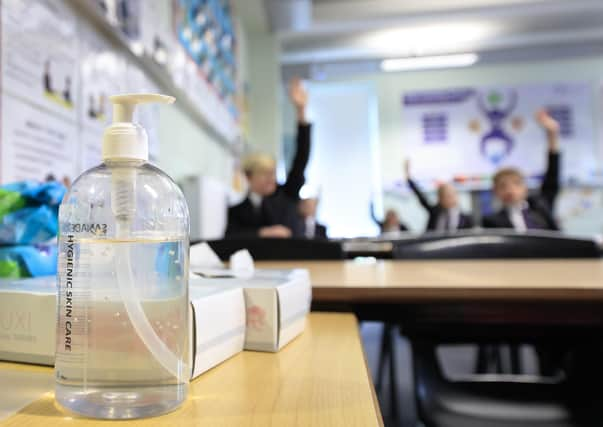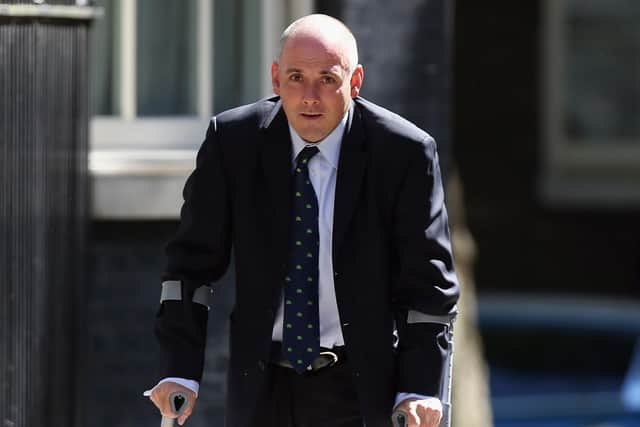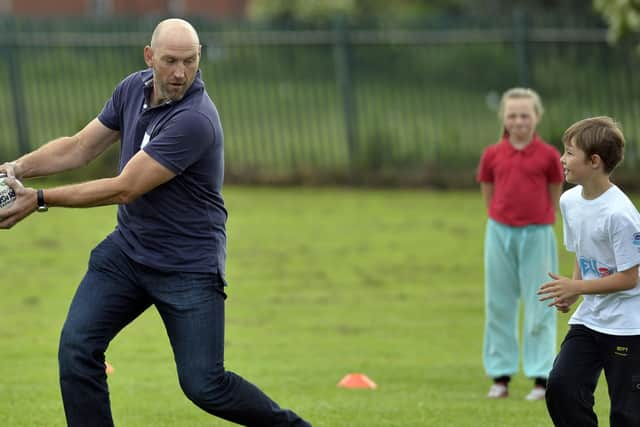How to extend school day to help pupils catch up – Robert Halfon


Will the A.C. (After Coronavirus) period lead to radical thinking or merely some incremental change?
Extending the summer term for a couple of weeks, is just that – incremental. Two or three extra weeks of teaching, while helping pupils a little, will not fundamentally rectify the lost learning and the catch-up that is needed.
Advertisement
Hide AdAdvertisement
Hide AdOne more radical option would be to extend the school day, either before or after traditional start and finish times. This is not to say teachers must work longer hours (unless properly recompensed), but, instead, civil society organisations should be invited in, to offer pupils professional mental health support, as well as sports activities and academic catch-up tuition.


It will be a virtuous circle. From a health perspective, we know that one in three primary school age children is overweight or obese, and that children living in the most deprived areas are almost twice as likely to be obese than those living in the least deprived areas.
This is hugely costly: physical inactivity among today’s young people is estimated to cost £53.3bn during their lifetimes.
There is also an established link between physical activity and better mental health. Children and young people who participate in in-school sports clubs are 20 per cent less likely to suffer from a mental health disorder.
Advertisement
Hide AdAdvertisement
Hide AdMoreover, in 2017, the Department for Culture, Media and Sport found that underachieving young people who participated in extra-curricular activities linked to sport increased their numeracy skills, on average, by 29 per cent above those who did not participate in sport.


The Education Endowment Foundation looked at the benefits of extended school hours and noted “the evidence indicates that, on average, pupils make two additional months’ progress per year from extended school time and in particular through the targeted use of before and after school programmes”.
It went on: “There is some evidence that disadvantaged pupils benefit more, making closer to three months’ additional progress. There are also often wider benefits for low-income students, such as increased attendance at school, improved behaviour, and better relationships with peers.”
According to a study by the Royal London Hospital (published in the British Medical Journal), the most dangerous time for under-16s is after school, between 4pm and 6pm, when they are most likely to become a victim of knife crime. Approximately half of under-16 stabbings take place during this time.
Advertisement
Hide AdAdvertisement
Hide AdWith so many young people socially isolated from their usual network in lockdown, and having lost out on their learning, extending the school day in this way would be enormously beneficial in every sense.


Of course, there will be those who immediately say that it is impossible – the unions won’t wear it. Well, some schools and colleges are already doing it.
Even before the pandemic, 70 to 80 per cent of independent schools operate an extended school day, usually offering a programme of extra-curricular activities. It’s also worth noting that 39 per cent of academy schools founded before 2010 also have extended school hours. Others may want to do it.
Moreover, if civil society organisations with expertise in mental health, sports and tuition step in, there is no pressure placed on teachers and support staff. Dallaglio Rugby Works (inspired by former international Lawrence Dallaglio) is an outstanding example of an established charity that places rugby coaches in schools for excluded pupils.
Advertisement
Hide AdAdvertisement
Hide AdCoaches lead weekly small groups of eight to 10 young people and support them to develop their soft skills, increase their engagement with school, and make more informed choices about their careers. Their outcomes cannot be ignored: 82 per cent of their young people are in education, employment or training 12 months after leaving school.
Extending the school day could be piloted in certain areas – perhaps starting in places with significant levels of disadvantage – to see if the extra hours help make a difference to pupils’ health and wellbeing, their engagement in the classroom during normal school hours and their academic attainment. If we want to really make a difference, to repair the damage of the last year, there is no time to waste.
We need to be much more ambitious for our children’s learning. The language of catch-up shouldn’t stigmatise children and we must be careful not to tar them with the brush of “left-behind children” during the pandemic. Instead, our language should be positive, framed in terms of “moving forward”.
Catch-up alone shouldn’t just be our ambition. Let’s hope the Government uses this opportunity to set out a real long-term plan for education and change what is necessary in order to conserve what is best.
Advertisement
Hide AdAdvertisement
Hide AdRobert Halfon is a Tory MP and chair of Parliament’s Education Select Committee.
Support The Yorkshire Post and become a subscriber today. Your subscription will help us to continue to bring quality news to the people of Yorkshire. In return, you’ll see fewer ads on site, get free access to our app and receive exclusive members-only offers. Click here to subscribe.
Comment Guidelines
National World encourages reader discussion on our stories. User feedback, insights and back-and-forth exchanges add a rich layer of context to reporting. Please review our Community Guidelines before commenting.